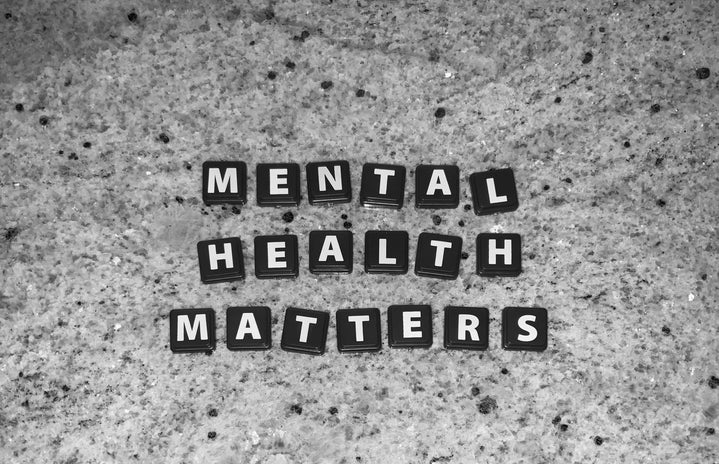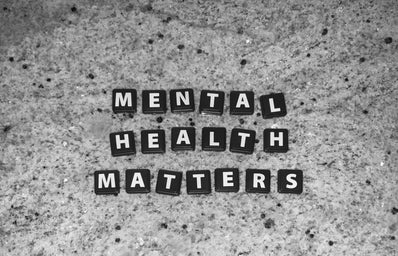SO, WHAT’S THE ISSUE?
Whilst being at University, I have an innumerable amount of conversations with my friends on a daily basis. The latest Tiktok trends, where we should go for our next night out, social justice issues and what we’re having for dinner that night are all topics that never fail to be discussed in our circle.
But there are topics that seldom make their way into our conversation repertoire. What do we do when we feel lonely? How do we manage the times when we feel the weight of a thousand deadlines crushing our shoulders? Where do we look to during our times of struggle? Who do we talk to about our mental health?
For many, university can be a tumultuous time that encompasses an array of different emotions. The feeling of independence, garnished with the prospect of experiencing so many new things, is topped with the realisation that responsibilities will only pile up from here on out.
In the midst of all of this, it can be difficult to find the time to check in with yourself about how you’re coping with all these changes. We live in a culture where mental health is still fairly taboo, and while it is a subject that is nuanced and should be handled with sensitivity, it still does hold a lot of importance and should be talked about more.
In a survey conducted by UCAS, an estimated 70,000 young people enter university with a mental health condition, every year. Deadlines, relationships, friendships, and finances are just some of the factors that can be a catalyst for the decline of a student’s mental health, and it seems to be an epidemic within universities across the country.
In the same UCAS survey, it is reported that ‘3.7% of all UK applicants declared a mental health condition in their application to study in 2020 – up from 0.7% in 2011.’ It would be naive to ignore how much the ongoing pandemic has exacerbated these concerns. Along with anxiety and depression, feelings of loneliness have also been widely reported.
The multiple lockdowns we dealt with during 2020, meant that many of us couldn’t regularly socialise outside our accommodation blocks and houses, contributing to increased loneliness. This, along with lectures and seminars being moved online, forms a breeding ground for feelings of isolation and detachment. So we’re aware that these problems exist, which is good. But what exactly is stopping us from actively talking about it?
THE MENTAL HEALTH STIGMA
While there is a more positive attitude towards speaking about mental health in recent years, it still proves to be a difficult subject matter to engage in. This is understandable; it requires time, sensitivity and effort to both support someone and open up about personal struggles. But there are also concerns that not talking about it at all can contribute to a cycle whereby one may not feel supported enough, either from a professional standpoint or a personal one, which in turn leads to further deterioration of one’s mental state.
Mental health is not to be undermined. It is a delicate topic, but perhaps what needs to change are the spaces that we create for ourselves to start these conversations. When discussing how we talk about mental health within our friendship groups, second-year medical student Donna says: “We talk about the topic of mental health, without actually talking about our mental health.” There seems to be more of a focus on talking about the stigma around mental health rather than the actual problems we face.
As UCAS reports, 49% of students chose not to disclose their mental health issues in their studies, which again, is understandable. But it’s also important to look at the reasons why students may not feel comfortable disclosing their issues.
- Feelings of guilt/trauma dumping – No one wants to feel like a burden to others. It’s common to see students refrain from sharing their experiences in fear of feeling like they’re bothering their friends. But it’s also important to understand that being able to share these feelings with another person is already a huge step towards overcoming the struggle.
- Pressure/societal standards – Being in a higher educational institution is inherently a privilege. It’s a privilege that comes with a lot of pressure pertaining to performance, grades and adhering to societal standards. According to the National Union of Students (NUS) 80% of students cite stress as being a factor contributing to their decline in their mental state. This likely stems from academic commitments such as exams, coursework and deadlines. This isn’t to minimise the importance of achieving good grades, but studies have shown that neglect in mental health does affect overall performance in the classroom.
- Invalidation/minimisation of mental health – “Being able to admit you have mental health issues is a very vulnerable thing to talk about.” These are the words of University of Leeds student Riddhi, discussing the stigma around mental health. It takes a lot of strength to open up about your struggle, and it’s a step that gets dismissed all too easily in places like the healthcare system, the education sector and even within our own friendships. There is a long-standing notion that because mental health doesn’t manifest itself the same way a physical injury does, it’s not as debilitating; this is far from the truth. When people open up about their experiences, the last thing we should do is shame, judge or invalidate what they feel.
WHAT CAN WE DO?
From personal experience, I can say that mental health issues do not discriminate. Most people do go through feelings of loneliness or anxiety or depression and, even if they’re just felt in waves, they’re still valid and deserve to be treated as such.
During my first year at university, my anxiety reared its ugly head and stared at me with an intensity I had never felt before. It was overwhelming, which only led to me feeling more anxious, opening the door for panic attacks. It was a vicious cycle of panic attacks; feeling overwhelmed because of how bad my anxiety had become, which only led to more panic attacks, which brought me right back to feeling overwhelmed. Rinse and repeat.
But over time – with the support of friends – I’ve found methods that help me cope, not just with my anxiety, but with all the other issues I’ve encountered while at university. While there are still days when I struggle, I now find it much easier to stare right back at my anxiety until its ugly head is only mildly unpleasant to look at. It’s a long and often difficult journey that doesn’t have to be done on your own.
Here’s some of my advice on how to manage your mental health.
- Stay in the present. It might sound really obvious, but I know a struggle I have is overthinking (thanks, anxiety). To stop myself feeling overwhelmed, I try to practice mindfulness and focus on what’s in front of me, what’s around me right now. If you’re overwhelmed with deadlines or just have a lot on your plate, breaking down your tasks into smaller chunks and taking it day by day can really make a difference in how you go about your week.
- Practice gratitude. When we’re going through a tough time, it’s easy to hyper-focus on the negative things and let all the little good things pass us by. Simply writing down even the smallest things we’re grateful for can ground us and help us realise that there are always lovely little things to look forward to.
- Cultivate safe spaces. This one is more for people who want to provide support for the ones around them who are going through a tough time. As much as people aren’t obligated to disclose their issues, it’s always helpful to know that support is there if and when needed. Making people feel comfortable is always a great step in sparking more open dialogues around mental health.
Here are some links and helplines for anyone in need of support!
- Samaritans: A helpline open 24/7 for anyone who needs someone to talk to.
- Nightline: An anonymous service implemented in universities across the UK who offer advice if needed.
- StoneWall: Centering the LGBTQ+ community, StoneWall offers support for those looking for mental health guidance.
- The mental health section on the NHS website has a lot of information for anyone looking to learn more about mental health.
Words by: Amarachi Ibanga
Edited by: Laura Murphy


